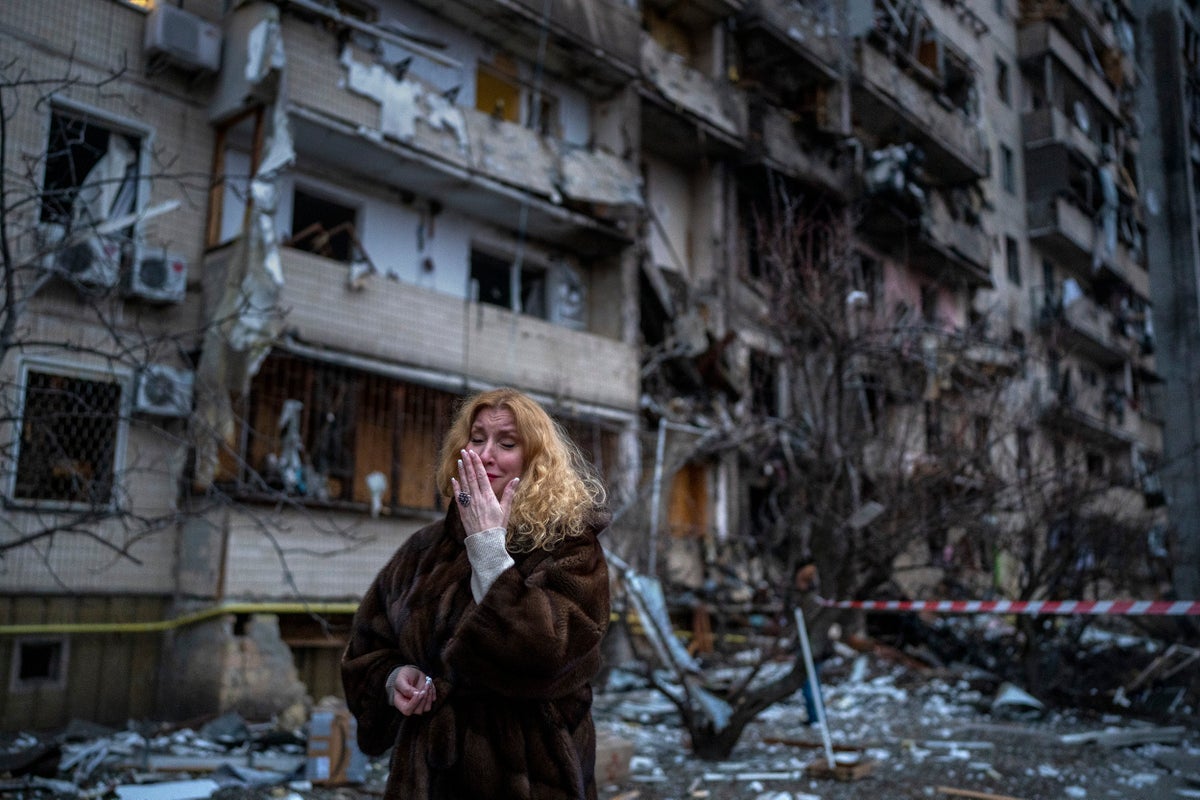The death of 60 people in Sunday’s gruesome bombing of a village school in the eastern Ukrainian region of Luhansk recalls the massacre of civilians in the town of Bucha a few weeks ago. The school, which had provided shelter to at least 90 people, was hit by a Russian bomb that set the building ablaze for four hours. It is direly palpable that the Kremlin has stepped up the offensive, notably surgical strikes that are claiming the lives of innocents. Shelling continues on the Azovstal steelworks, the last hideout of Ukrainian resistance in the devastated south-eastern port city of Mariupol, where soldiers from the Azov regiment have vowed to continue fighting. “Thirty people were evacuated from the rubble, seven of whom were injured. Sixty people were likely to have died,” the Governor of Luhansk, Serhiy Gaidai, wrote on Telegram, adding that two bodies had been found. In Mariupol, the deputy commander of the Azov regiment urged the comity of nations to help evacuate wounded soldiers from the sprawling Azovstal steel plant. As Russia is seemingly on a roller-coaster in terms of the military operation that began on 24 February, Ukraine’s military has pledged to continue the “fight as long as we are alive to repel the Russian occupiers”. Clearly, attitudes have stiffened on either side of the wartime fence in course of a seemingly relentless conflict.
The Ukrainian President, Volodymir Zelenskyi, said that more than 300 civilians had been rescued. The authorities of the embattled country will try to evacuate the wounded and medics. Russian-backed separatists said a total of 145 people, including 24 children, were evacuated on Sunday from Mariupol to the village of Bezinenne, in the area they control. Indeed, the evacuation of the dispossessed is now a forbidding challenge, as it happens during an international crisis. Near Mariupol, hundreds of people, who had fled the port city and nearby areas on their own, waited to be registered in a car-park being used to process evacuees.
The Russian Deputy Prime Minister, Marat Khasnullin, visited Mariupol on Sunday, the first senior government figure to set foot in the city after weeks of Russian bombardment. He visited the commercial port and said it should be used to bring in building materials to restore the city. Not wholly unrelated to the humanitarian facet of the Russian blitz is the G7 decision to ban or, at any rate, phase out imports of Russian oil. The United States has unveiled sanctions against Gazprombank executives and other business enterprises to punish Moscow for its war against Ukraine. The move represents the latest attempt by the West to exert pressure on Vladimir Putin for his country’s invasion of Ukraine. The Nuclear Regulatory Commission will suspend licences for the export of “special nuclear material” to Russia. Meanwhile, the war that President Putin cannot back out of, and one that the West will not let him end, continues to rage.












